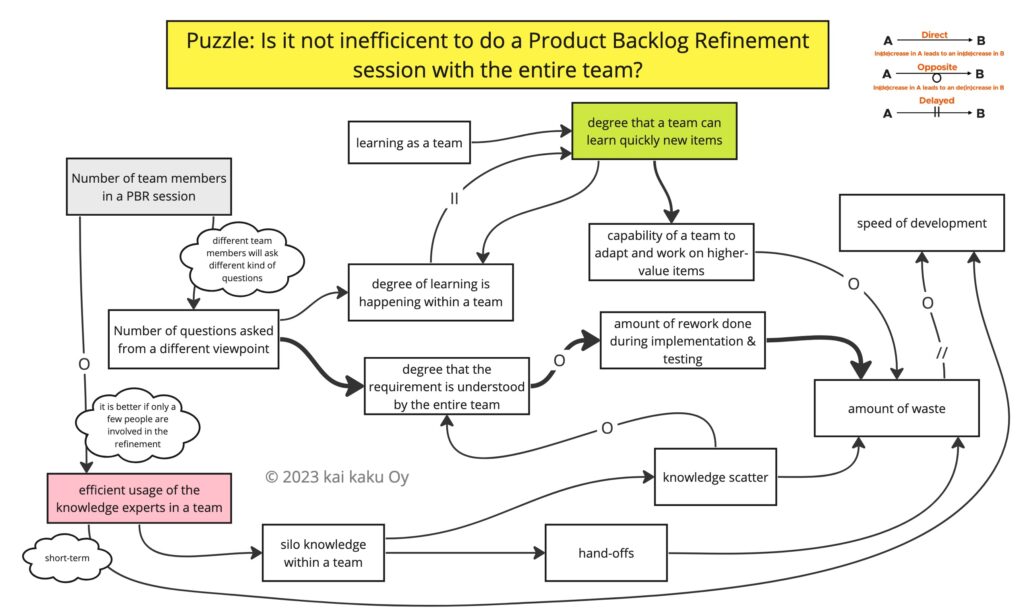Systems Modelling - Is it not inefficicent to do a Product Backlog Refinement session with the entire team?

In one of the previous Product Backlog Refinements, an internal stakeholder asked me whether it was inefficient to have all team members in the refinement session. I like to take the opportunity to answer the question with a Systems Model. Here are my thoughts on this:
When we have a lot of team members in the refinement, the experts within the team do not work to their maximum efficiency assuming they need to explain design and such to other team members. In the short run, this might lead to a slower speed of execution. On the other hand, the more efficient we utilize the team experts, the more we continue to build up silo knowledge within the team. This isolated knowledge will lead to hand-offs and knowledge scatter which are regarded as types of waste. Knowledge scatter means that the knowledge in the team is spread and that diminishes the degree that the entire team understands the requirement. From the concept of flow efficiency, we also know that waste might build up and lead in the long run to a slower speed of execution (aka longer cycle times).
On the other hand, assuming that the entire team is involved in refinement sessions, the more team members will ask questions from different angles and the better the requirement is understood by the entire team. Following this path, the more the team understands the requirement, the less re-work we will experience which typically comes from misunderstood requirements, missing acceptance criteria, and the like.
This strong involvement from every team member will lead also to an increased degree of learning in the team, and in the long run result in a higher capability to adapt, understand new requirements, and learn new items. Both of those aspects result in less waste and thus a higher speed of development.
In conclusion, we want the entire team to participate in refinement sessions. By doing so, we sacrifice short-term efficiency for long-term improved flow efficiency of development and increased organizational learning.
